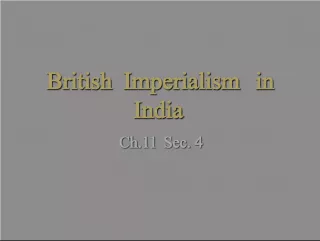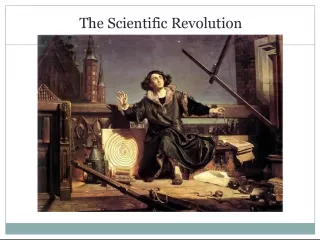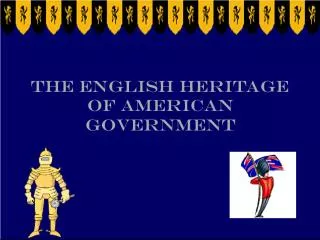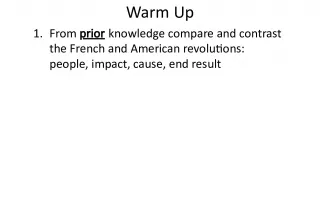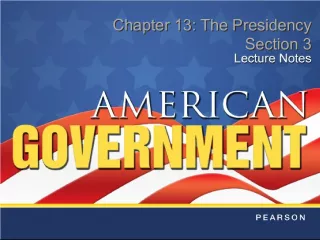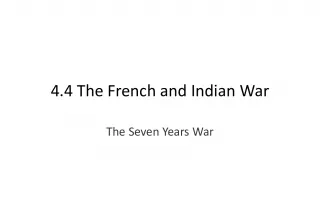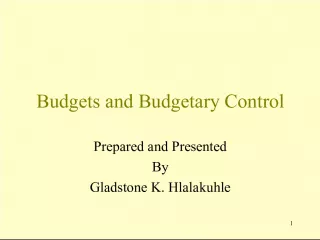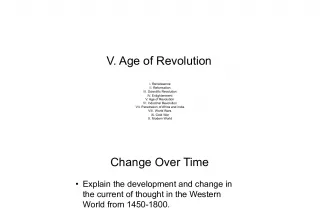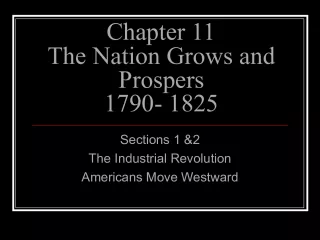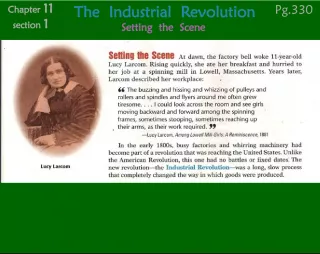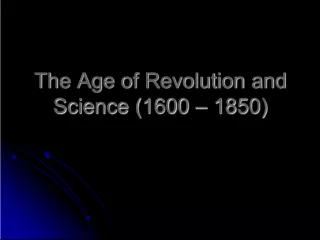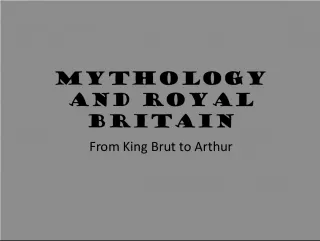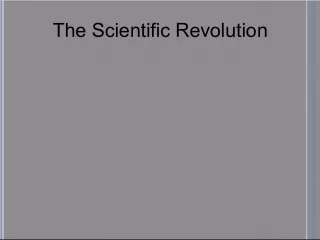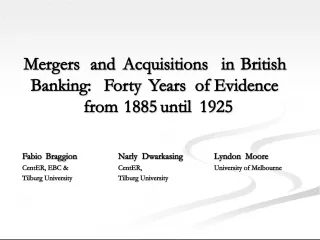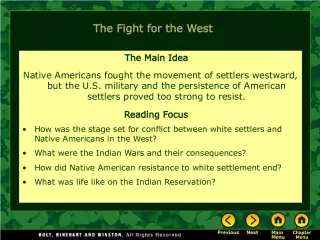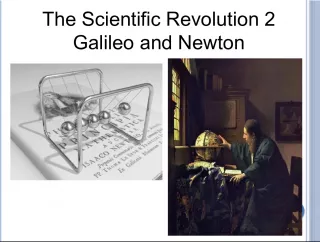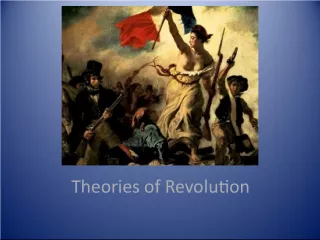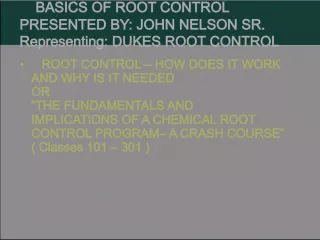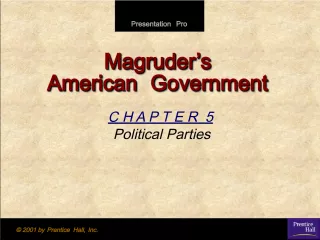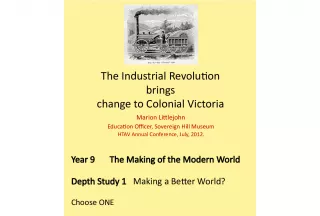The American Revolution: Examining British Control and Colonist Dissatisfaction
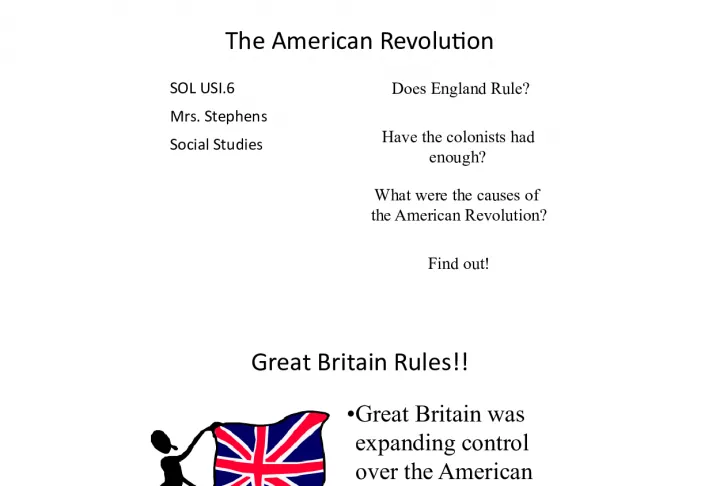

In this social studies lesson, Mrs. Stephens explores the causes of the American Revolution, focusing on how Great Britain expanded its control over the American colonies through economic means
- Uploaded on | 2 Views
-
 stanley
stanley
About The American Revolution: Examining British Control and Colonist Dissatisfaction
PowerPoint presentation about 'The American Revolution: Examining British Control and Colonist Dissatisfaction'. This presentation describes the topic on In this social studies lesson, Mrs. Stephens explores the causes of the American Revolution, focusing on how Great Britain expanded its control over the American colonies through economic means. The key topics included in this slideshow are . Download this presentation absolutely free.
Presentation Transcript
Slide1The American RevolutionSOL USI.6 Mrs. Stephens Social Studies Does England Rule? Have the colonists had enough? What were the causes of the American Revolution? Find out!
Slide2Great Britain Rules!!• Great Britain was expanding control over the American Colonies • Many colonists became dissatisfied and rebellious
Slide3How did Great Britain control thecolonies? Economic • Controlled trade • Taxed the colonists after the French and Indian War • Colonies traded raw materials for goods made in Great Britain Political • Colonists had to obey British laws enforced by governors • Governors were appointed by the king • Colonial legislatures were monitored by the governors
Slide4Patriot vs. Loyalist• Patriot • Colonist who want to be independent (free) of England’s control. • Loyalist • Colonist who wanted to remain controlled by England.
Slide5What were Great Britain’s reasons forcontrol? • Remain a world power • Needed Money to pay for French and Indian War and British troops in the colonies. (Taxes)
Slide6Reasons for Taxation• Finance the French and Indian War • Finance the maintenance of British troops in the colonies
Slide7What is the Stamp Act?• Important British tax on colonies – Stamp Act • Colonists must buy stamps for all printed material • When: 1765 • Why? To pay for the cost of the French and Indian War
Slide8The Stamp Act• Colonists threatened to tar and feather stamp commissioners
Slide9Finally the colonies had enough!• No representation in Parliament. • “No Taxation Without Representation!”
Slide10Colonists were dissatisfied!• Resented power of colonial governors (appointed by the King)! • England had strict control over colonial legislatures
Slide11The colonists were dissatisfied!• Opposed Taxes • Proclamation of 1763 that restricted westward movement
Slide12What is the Proclamation of 1763 ? • A law that said the colonists could not settle the Ohio Valley • They fought the F&I war to win the Ohio Valley • Colonists found this unfair (some wanted to move west)
Slide13Why did the King issue theProclamation of 1763? • He thought it would be too expensive to protect the colonists in the Ohio Valley. • 2000 settlers had already died there.
Slide14Letter to the King• Imagine you are a colonist living in Boston Massachusetts. You have become angry and fed up about your life under British control. Write a letter to King George III explaining why you are dissatisfied with British control of the colonies. • Must be in letter form. Explain the relationship between England and its colonies , the 5 things that make you dissatisfied, and what you want the king to do. • Must be 1 full page neatly written on NB 59.
Slide15Use Your Axes to Slash the TaxesWhat we Demand!!! • Ability to move west • Governors with less power • A say in Parliament • No taxes • Ability to make our own laws
Slide16How would you feel?What would be your point of view if you were living in England? Living in the colonies? For each side answer the following questions: How do you feel about taxes? Why? How do you feel about the king? Why? How do you feel about the Proclamation of 1763? Why? How do you feel about the Quartering Act? Why?
Slide17Key Individuals of theRevolutionary War • What role did key individuals play in the Revolutionary War?
Slide18King George III (the king who lost America) • British King during the Revolutionary War.
Slide19Lord Cornwallis (the other man who lost America) • British General who surrendered at Yorktown.
Slide20John Adams• Championed the cause of independence
Slide21George Washington• Commander of the Continental Army
Slide22Thomas Jefferson• Major author of the Declaration of Independence
Slide23Samuel Adams• Patriot who helped lead the Boston Tea Party.
Slide24Patrick Henry• Outspoken member of the House of Burgesses • Inspired colonial patriotism with “Give me liberty or give me Death” speech
Slide25Benjamin Franklin• Member of Continental Congress • Helped frame (write) the Declaration of Independence • Helped gained French support for American independence
Slide26Phyllis Wheatley• A former enslaved African American • Wrote poems and plays supporting American independence
Slide27Paul Revere• Made daring ride to warn colonists of British arrival • “The British are coming!”
Slide28Key Events during the RevolutionaryWar Period • What were some of the Key Events during the Revolutionary War Period?
Slide29Proclamation of 1763• Colonists could not move west of the Appalachian Mountains
Slide30Stamp Act - 1765• Stamp or British seal required on all things made from or used paper.
Slide31Boston Massacre - 1770• Colonists in Boston were shot after taunting British Soldiers
Slide32Boston Tea Party- 1773• Led by Samuel Adams and Paul Revere • They threw tea into Boston Harbor to protest tea taxes .
Slide33First Continental Congress- 1774• Delegates from all colonies (except Georgia) met to discuss problems with England and colonial independence.
Slide34Battle of Lexington and Concord -1775 • First armed conflict of the Revolutionary War
Slide35Approval of the Declaration ofIndependence • July 4, 1776 • Declared independence from Great Britain
Slide36Battle of Saratoga - 1777• Turning point of the war • American victory
Slide37Surrender at Yorktown - 1781• Cornwallis surrenders • End of the Revolutionary War
Slide38Signing of the Treaty of Paris- 1783• Great Britain recognized American Independence
Slide39The Declaration ofIndependence
Slide40New Ideas!• New political ideas led to a desire for independence and democratic government in the American colonies
Slide41Declaration of Independence• Written by Thomas Jefferson • Based on ideas expressed by European philosophers • People have “unalienable rights” of life, liberty, and the pursuit of happiness • People establish government to protect rights • Government derives power from the people • People have a right and duty to change a government that violates their rights!
Slide42How did the colonists defeatEngland? • What advantages helped the American colonists with the Revolutionary war?
Slide43Colonial Advantage 1• Defense of their own land, principles, and beliefs
Slide44Colonial Advantage 2• Support from France
Slide45Colonial Advantage 3• Strong Leadership
